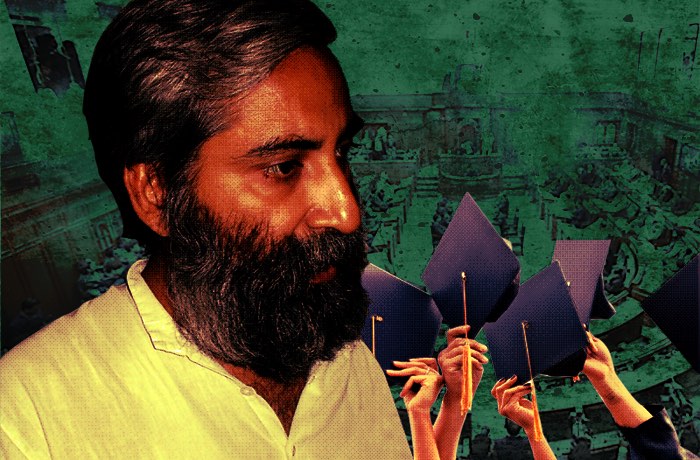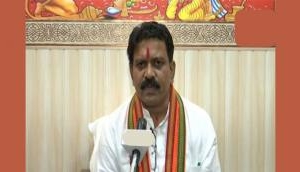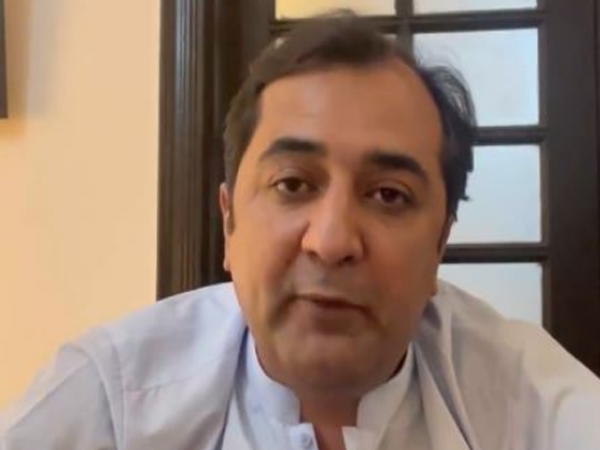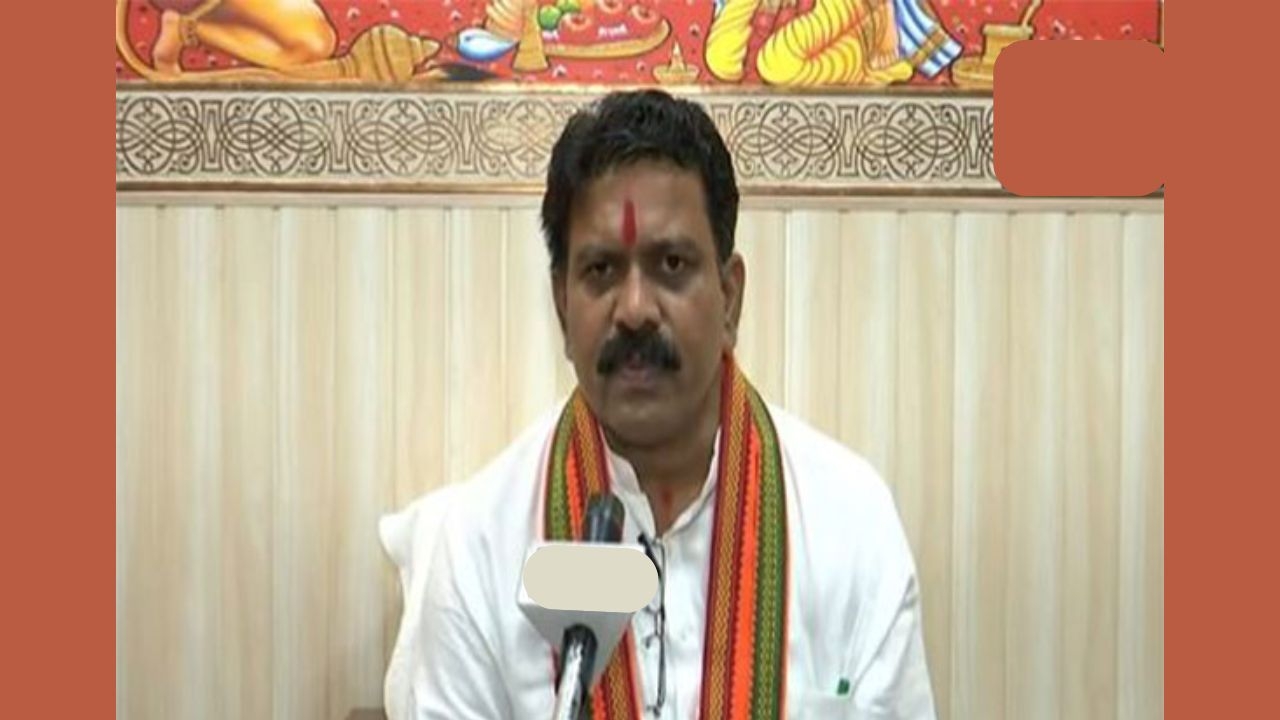Revamp of Delhi school education: Kejriwal's 'historic' mistake

The overhaul
- Kejriwal\'s Delhi govt has announced an overhaul of the school education system in the capital
- AAP\'s own MLA Pankaj Pushkar wanted a debate, but was thrown out of the assembly
The changes
- It wants to scrap the rule that prevents students from repeating a class till the eighth standard
- It won\'t be mandatory for pvt schools to pay teachers at par with govt school teachers
More in the story
- Why the new policy is bad news for poor children and private school teachers
- How Kejriwal has become exactly the kind of politician he once opposed
A few days ago, the Arvind Kejriwal-led Delhi government announced a 'historic transformation' of the school education system in the national capital. The education ministry put out full-page advertisements in newspapers, declaring its plan to implement the new policy.
The policy has identified four key issues of reform in the current education system. But when the Aam Aadmi Party's own MLA, Pankaj Pushkar, wanted a debate in the assembly over the policy, he was shown the door by the marshals.
Read- 'Dictator' Kejriwal is fooling Delhi with Jan Lokpal: Pankaj Pushkar
The proposed changes
The Kejriwal government seems to be misleading the people in the name of overhauling the education system. There are serious doubts whether it is really interested in improving the government schools of Delhi.
The new policy proposes four significant changes:
- The government will scrutinise the financial accounts of private schools.
- All donations will be scrapped for nursery admissions. Parents would no longer need to appear for the interview.
- The policy of not making students repeat a class till the eighth standard will be revoked.
- It will not be mandatory for private schools to pay their teachers at parity with the salary structure of government teachers.
The hidden meanings
According to Section 10(1) of the Delhi School Education Act-1973, the salary and perks of private school teachers must be equal to that of government teachers. The new policy proposes to end this provision. The change is clearly aimed at benefitting school owners. One fails to understand how this is going to give poor students a better chance at a quality education.
Teachers are not protected under the Industrial Disputes Act-1947 or the Minimum Wages Act-1948. The new policy could reduce their status to that of a domestic servant. All the proposed changes suggest that the government is working under pressure from school owners.
All the proposed changes suggest that the Delhi govt is working under pressure from school owners
The new policy also aims to amend the Right of Children to Free and Compulsory Education Act-2009. This law mandates that students cannot be demoted till the eighth standard. The idea behind the provision is to reduce the dropout rate from schools. A total of 28 states have adopted the provision. But, it is being dumped in Delhi.
The revocation of this policy would particularly affect poor children, who already have a high dropout rate.
Kejriwal has become what he was dead against
In his zeal to 'historically transform' Delhi's education system, Kejriwal is treading in the wrong direction. His attitude in this regard is surprising, to say the least.
It has been the political culture of mainstream parties to malign every detractor as the agent of opposition parties. Kejriwal had entered into politics with a promise to do things differently; however, he is proving to be the same kind of politician that he was dead against.
If Kejriwal had clear intentions, he could have taken over the private schools that were not paying their teachers in accordance with the law.
The AAP govt in Delhi has identified four key issues of reform in the current education system
One needs historic initiatives to affect historic changes. A case in point is Sri Lanka, which has completely banned private schools. No country in the world has achieved a high rate of literacy through private schools; it was invariably done by strengthening the public education system.
In August, the Allahabad High Court directed all government servants in Uttar Pradesh to send their children to primary schools run by the state basic education board. Kejriwal could have used this judgement as an opportunity to chart out a new course towards improving primary education.
Kejriwal could also have implemented the uniform education policy recommended by the Kothari Commission. This could have earned him great political support among the masses. However, he seems to have lost the plot.
Time to call his bluff
Some people see Kejriwal's publicising of the proposed education policy as an attempt to establish his brand. All major political parties have indulged in such tactics in the past. There surely isn't anything 'historic' about trumpeting your own policies.
Almost all parties profess socialist ideals in their manifestos. However, they adopt capitalist policies after coming to power. The Kejriwal government is also guilty of doing the same vis-a-vis its education policy.
Also read- Big talk, little action: Is this Arvind Kejriwal's legacy as CM?
Kejriwal has managed to sideline every critic in the party. There is hardly anyone in the political affairs committee (PAC) who can stand up to him. It is clear after the ouster of Prashant Bhushan and Yogendra Yadav that Kejriwal has used civil society intellectuals for political gains.
The Kejriwal phenomenon was the outcome of a mass movement. Members of the civil society had high hopes from him. This trust lies in tatters today. The time has come to call Kejriwal's bluff.
(As told to Abhishek Parashar)
More in Catch:
National Herald case: where did the Gandhis go wrong?
Is India headed for Ram Mandir 2.0? Watch what people have to say
The year in Twitter trends: Modi, One Direction, same-sex marriage and The Dress won the internet
Missing Persons alert: Why are Indian promoters afraid of women directors?
First published: 9 December 2015, 11:58 IST





![BJP's Kapil Mishra recreates Shankar Mahadevan’s ‘Breathless’ song to highlight Delhi pollution [WATCH] BJP's Kapil Mishra recreates Shankar Mahadevan’s ‘Breathless’ song to highlight Delhi pollution [WATCH]](http://images.catchnews.com/upload/2022/11/03/kapil-mishra_240884_300x172.png)

![Anupam Kher shares pictures of his toned body on 67th birthday [MUST SEE] Anupam Kher shares pictures of his toned body on 67th birthday [MUST SEE]](http://images.catchnews.com/upload/2022/03/07/Anupam_kher_231145_300x172.jpg)






